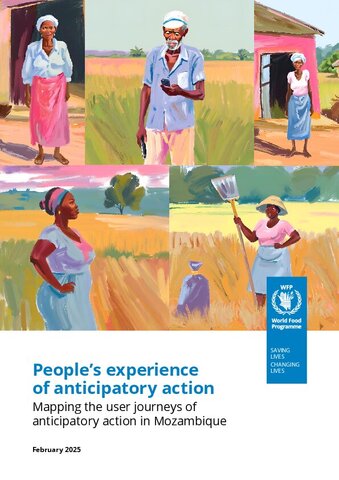
While there is much quantitative evidence on the impact anticipatory action has across different contexts, there is less qualitative research that examines how these interventions work for different types of people. This report aims to address that gap by exploring the user journeys of WFP’s anticipatory action recipients in Mozambique. By capturing the experiences from the point of view of the recipients of that assistance, in their own words, this report captures the realities of anticipatory action on the ground, identifying what works well, and highlighting areas for improvement. These insights will help refine WFP’s approach, ensuring that anticipatory action is as effective, inclusive, and responsive as possible.
